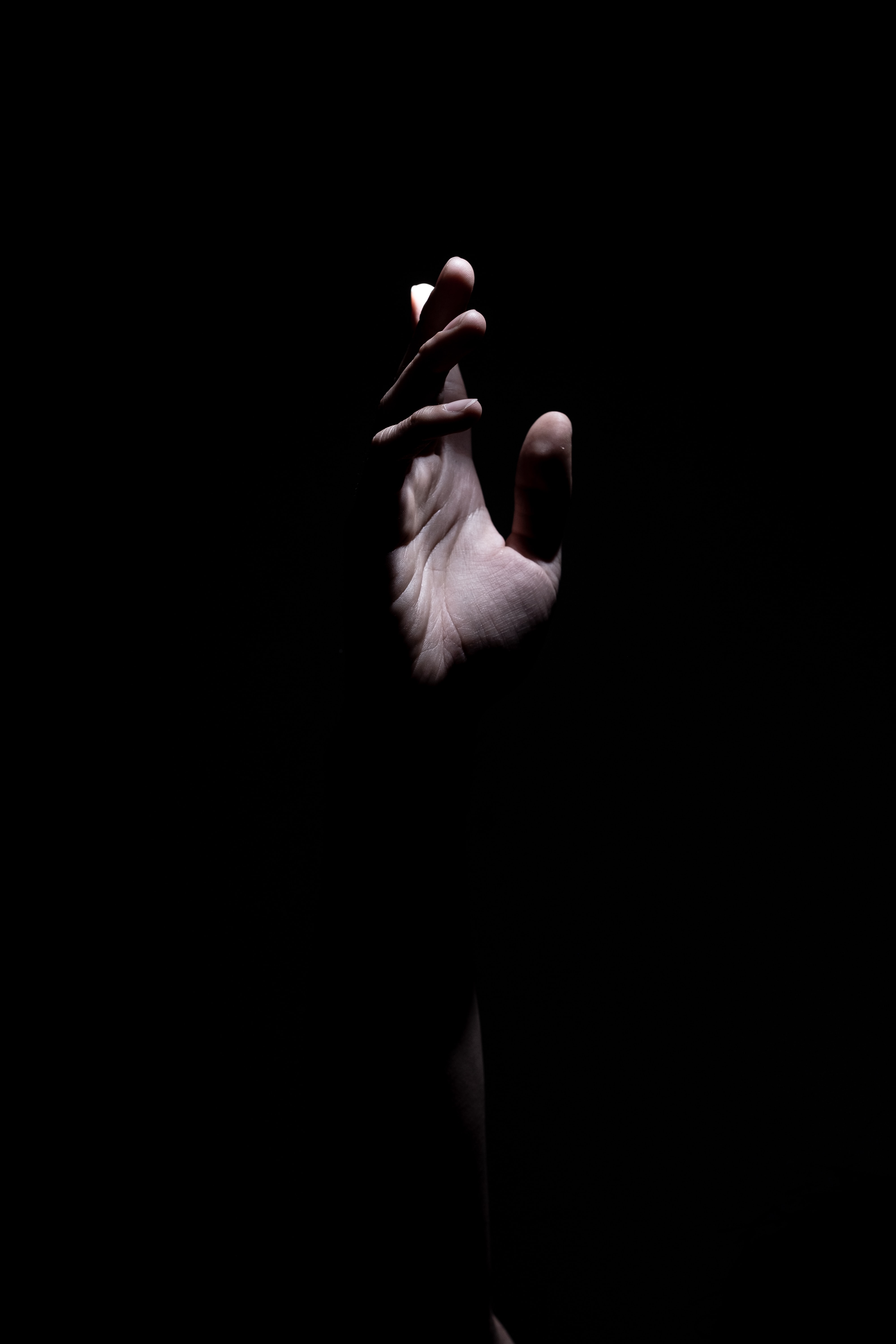‘It’s submission,’ Rediger murmured. ‘The shocking and simple idea, which had never been so forcefully expressed, that the summit of human happiness resides in the most absolute submission…’
– Michel Houellebecq, Submission
Submitting myself to read Houellebecq’s Atomised was a terrible decision. It was a very mediocre experience, that I got to about a hundred pages in, of masturbatory ramblings of a misanthropic Frenchman coping at being too late to be born during times when his yelling at the air wouldn’t be in regard of our current modernity (or France’s current modernity, to be precise). Houellebecq’s pseudo-intellectual referencing to science, philosophy, and other intellectual capacities that he could muster prove to me meaningless when most of the time Houellebecq is only able to gather them in the starting paragraphs of the chapters they’re in, giving the sense of a larger importance just for the actual meat-and-bone of those chapters to have no clear correlation whatsoever to those pseudo-intellectualism. Or worse; the meat-and-bone jumps straight into Houellebecq's distasteful writings of the sexual, lewd, decadent, or whatever the French want to call those kinds of writings. And while I understand that more often than not you need to read between the lines when it comes to literature, Houellebecq has a special talent as a writer to make you want to get it over with when reading his book.
On August 8th of this year, I told myself and the literature Discord server I’m in that Houellebecq is too French for me and I wouldn’t desire to touch his works or any other works from a French author for an unspecified amount of time. That same day, I started reading Houellebecq’s Submission, and on the next day, August 9th, I finished it.
What pulled me into reading Submission was just one thing, one specific element from the book, and that is: Islam. Yes, Islam. One of the religions out of the big three Abrahamic, the second largest religion in the world, the major religion of Indonesia, and the fastest growing religion in France. Islam played an insurmountable role in Submission right from the start, from the plot summary. An excerpt of the plot taken from Goodreads read, ‘...Islamic party sweeps to power. Islamic law comes into force. Women are veiled, polygamy is encouraged, and Francois is offered an irresistible academic advancement—on condition that he convert to Islam…’. As a Muslim guy from Indonesia, this hooked me in. Yet, I was at first skeptical of the part where, in that plot summary, Adam Gopnik from The New Yorker described Houellebecq as ‘a sincere satirist’. Therefore, according to Gopnik’s statement, Submission is a satire, right? Well, I’ll explain my stance on that later.
In summary, Submission tells the story of a middle-aged professor of literature named Francois who is an expert on the works of 19th century French decadent and naturalist writer, Joris-Karl Huysmans. Francois relationship with the late Huysmans is filled with as much sexual and spiritual tension as his sexual and non-sexual life. Sexually, he mainly fills the void with the presence of women, particularly his Jewish girlfriend, Miriam. While non-sexually, he dwells himself within the world of literary intellectuals, France’s socio-political climate, and how and why was Huysmans able to become a Catholic convert at his later years. Right from the start, the book mirrored the reality of France at the time (of Houellebecq writing) with how Islam is being everwatched as an ever growing force capable of very significantly reforming France and even the Western World at large. Where it differs from reality is that, in the fictional 2022 of Submission, an Islamic political party won the presidential election. Reforms came quick and wide in Paris. For Francois, who has always been a Parisian at heart, sees at the end, through his peer Rediger, that earnest submission to his new religion, new environment, new everything is the only true way to happiness. At that end, Francois finally found his moment of Huysmans after he embraced Islam. With the last sentence of the book being, ‘I would have nothing to mourn.’
Readers’ receptions of Submission, much like Houellebecq's other works, are polarized. It seemed that you would either love it or hate it from what I was able to gather. And loving it may implies that you understand the book as this scathing dark satire that is either Islam-centered or Western-centered.
What I mean by that statement is, an Islam-centered lense would likely view Submission as strong in its critique against the rise of Islam in the Western World, mainly brought by the surge of immigrations into Europe. Therefore painting the book as a mean of warning against how Christian, liberal, capitalist, humanist, secular, or any other dominant and important Western World views that have taken a long time to shape the Europe we know today may be lost in the blink of an eye if Islam and its values ever became the strongest in Europe. This is supported by a statement Houellebecq himself made during an interview with Angelique Chrisafis for The Guardian where he explained that consider himself Islamophobic; that’s in the notion of fear rather than hatred even if radical Muslims are a very small minority, but something small can produce a very big effect.
On the other hand, a Western-centered lens would consider Submission as criticizing the values of the Western World through a hypothetical fictional France as its prime example. Francois through Huysmans and Houellebecq went through the journey told in the book to discover and realize that he has been living the life of a Frenchman devoid of any true value. He and his fellow intellectual peers may be experts in their fields, able to spurt out any and all details relating to their respective literary following. But, at the end of the day, what’s the point of it? It contributes to a sorrowful experience of telling themselves, ‘I was born in the wrong generation’. The plague of contemporary men. That is what modernization fought for for such things as humanism, liberalism, and all that contribute to making a husk of men. As Europe, believed by Francois, was first and had long been united under the values of Christianity. With today Christianity he believed had became too integrated with all those other values, an acceptance toward Islam may be needed to restore Europe, starting from France, into an era where society at large and men individually understand the values they have.
While I tend to believe more on the latter assessment, I don’t believe that Houellebecq's intention with Submission is to satire just one extreme. Submission, in my opinion, is a piece of Menippean satire. Partly, it’s a satire where the main subject attacked concerns mental attitudes. Largely, its characteristics are best described by Mikhail Bakhtin. But, for that, I suggest you just go to the Wikipedia page for Menippean satire like I did… – Finished reading? Great! Without having to reiterate to you what Menippean satire is, I believe that several key characteristics described by Bakhtin can be attributed to Submission. One of the most important being the experimentation with Francois’ psychopathological state of mind; with his sudden in-between sincere and cynical submission to accept a conversion to Islam. Other connections can be made but that’s not the point of this article. From what has been laid down here, I believe that it’s safe to attribute Submission as a possible Menippean satire. This is important to remember when you’re trying to pitch this book to someone without falling back into only knowing Houellebecq as that one pornographic contemporary French author (even though I would argue it’s valid to label him as such).
Going back to the Islam-centered vs Western-centered argument, by processing those two viewpoints through the classification of Submission being a Menippean satire, then I believe it’s valid either way or in any other ways where do you think the book ultimately wanted to guide its attacks toward. To speak more “objectively”, I can say that it’s a pretty good satire. It addresses all sides without relying on gimmicks of shock and crudeness meant to enfire cheap extremities. It tells itself in a bare fashion; a just is. But what’s ‘just is’ was effectively executed in this book set and written during our era of the 21st century where our current beliefs and values are more often than not, even without our conscious knowledge and acknowledgment, shift and stay in polars and vacuums instead of an open space. If you dive into this book harboring the values and beliefs satirized in quite the careful moderation by it, then it may not matter how frail those attacks really are in all consideration, you would take it more than it is.
With that previous paragraph out of the way, you might think to yourself, ‘Why’re you stating the obvious that a particular group of interests which get satirized may not like getting satirized???’ The answer to that is: again, because in all consideration, Submission went surprisingly soft with its punches.
As a Muslim guy, let me explain to the best of my ability about its portrayal of France under an Islamic government. It’s good. The fictional president, Muhammad Ben Abbes, was portrayed through all of the book social, political, economical, geopolitical, etc mumbo jumbo as a good moderate Muslim leader. Of course, there were elements of the extremist and radical Islamic group and their attacks, but they were presented as, well, as is. There was no such thing as an extreme plot point where the group overtook Ben Abbes and created an anarcho-Shia state or something. It wasn’t written into the book because, as I understand it, it just wouldn’t be what would possibly happen in real life France. One of the most extreme change brought by Ben Abbes was the matter of polygamy. Yet, that too was written reasonably. The matter of polygamy wasn’t presented exaggeratingly or in explicit contra. It was implemented in connection with the values of Islamic traditions and fundamentals. In regard to tradition, its patriarchy. I unashamedly describe it as such in a manner similar to how Houellebecq used the term ‘Islamophobic’; it’s not about the belief of men being better than women, but that the societal priority is placed upon men (I’m not going to discuss Islamic feminism, you can search about that interesting topic on your own). Due to these kinds of consideration Houellebecq had with Submission, I managed to read and quite enjoy the book until the end unlike Atomised.
In the end, I’m not here to preach to you any subliminal message. This article is but an honest overview of what I think about Michel Houellebecq’s Submission. If you ever feel like picking this book up, please remember to start it with a clear and open mind, know that you can drop it at any time if you don’t enjoy it, know that you don’t have to agree at all with what Houellebecq may have intended to communicate, and frankly, you don’t even have to truly understand the countless allusions this book tend to direct you, even superficial knowledge will get you through to understanding the bigger and more important meaning of the book, hopefully.
Next, I have the intention of reading Huysmans. Starting with Against Nature or À Rebours and seeing if I would enjoy the book as much as Francois seemed to. If the universe does come to be, I might write to you a piece of article about that book. Until then, au revoir, lectrices.
***





